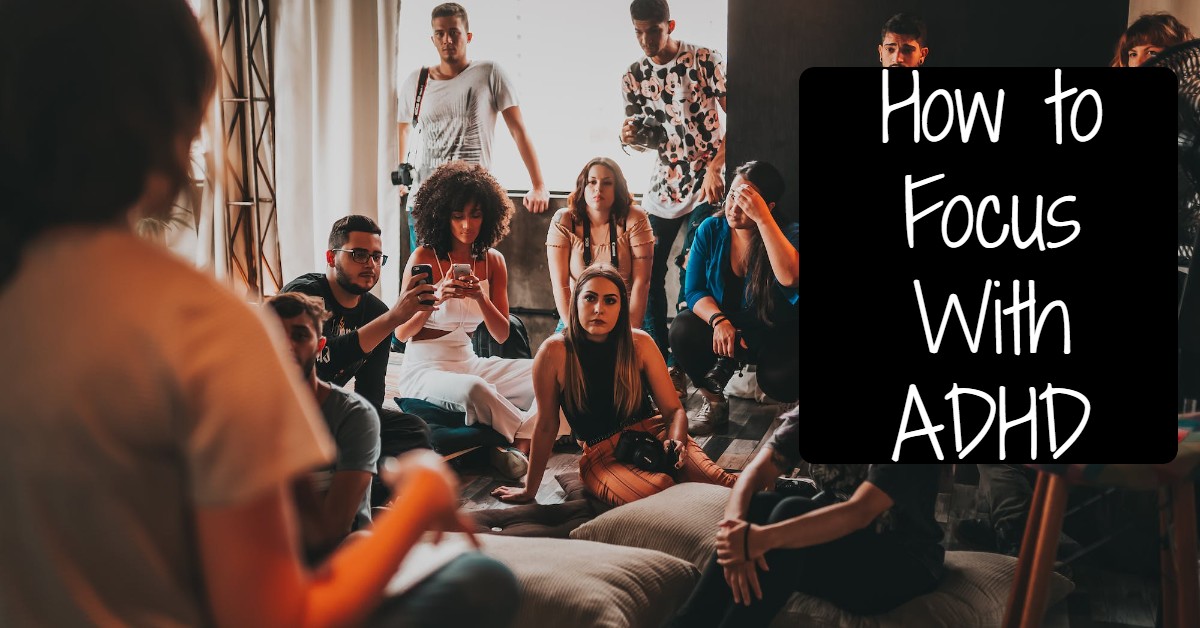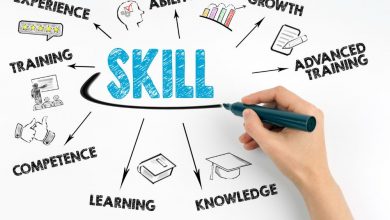How to Focus With ADHD (11 Trusted Tips)

Focusing on ADHD can be a challenging task. To help you focus correctly, we have researched this piece on how to focus with ADHD.

ADHD stands for Attention Deficit Hyperactivity Disorder, which is a neurodevelopmental disorder that affects the brain’s ability to regulate attention and impulses. Individuals with ADHD often struggle with maintaining focus, staying organized, and completing tasks.
Scattered thinking and difficulties concentrating can be part of life with attention deficit hyperactivity disorder (ADHD). You can establish big goals only to find yourself becoming sidetracked or walking away entirely.
This lack of focus can present challenges at school, at work, and at home. Even though you might not be able to make yourself concentrate, there are techniques you can use to keep your attention.
How to Focus With ADHD (FAQs & Answers)
Can medication help with ADHD focus?
Yes, medication can be effective in managing ADHD symptoms and improving focus. Stimulant medications like Ritalin and Adderall are commonly prescribed to individuals with ADHD to improve attention and focus.
Are there any natural remedies that can help with ADHD focus?
While there is no cure for ADHD, some natural remedies may help with focus. These include omega-3 fatty acid supplements, herbal supplements like ginkgo biloba and ginseng, and lifestyle changes like exercise and a healthy diet.
Can therapy help with ADHD focus?
Yes, therapy can be helpful for individuals with ADHD to learn coping strategies and develop skills to manage their symptoms. Cognitive-behavioral therapy (CBT) and mindfulness-based therapy are often used to help individuals with ADHD improve their focus and concentration.
How to Focus With ADHD
Learning what works best for you will help you focus better. Not every method will be a good fit for your unique situation. To find the best ones for you, some trial and error may be necessary.
1. Interrupt yourself
Deliberately pausing an activity could help you focus on completing it. Experts say that drawing oneself away from a work develops tension, and obsession with the activity eventually boosts your attention. Your brain had been focused, but when the focus’s subject was removed, you might feel empty. While distractions might be a problem during project interruption, setting an alarm for brief breaks may assist you in wanting to go back to what you were working on.
2. Try doing one thing at a time
Try concentrated single-tasking as an alternative to multitasking. Setting a time limit will help you concentrate entirely on one task for the designated amount of time. Try taking a little break once that period of time is up before starting the same work again or switching to a new one. This ensures variety and can be a great way to stave off boredom. It allows you to concentrate on one subject at a time while reducing other distractions rather than having to divide your attention between many tasks.
3. Connect With Positive Coworkers
If you’re having trouble remaining focused at work, a sympathetic coworker might be a great morale booster. Some persons with ADHD have found it beneficial to talk to their employers about the condition and work together to find solutions. Take into account the benefits and drawbacks of telling your employer about your illness. It’s up to you if you want to ask for adjustments to be made, although that could be useful.
4. Utilize Stress-balls
A little ball to roll in the hands, a tactile ball to squeeze, a pen to spin between the fingers, or paper for drawing might be effective fidget toys for certain people. It’s also beneficial to have a pen and paper nearby so that you can scribble down any questions, ideas, or notes that come to mind as you work.
However, not everyone believes that fidget toys help with self-regulation, despite their widespread use among both children and adults. There’s evidence to suggest they can distract people and lower concentration.6 It’s up to you to find out what works best for you, but you might find that such things help.
5. Practice Self-Care
To fuel your focus and productivity, it is also important to ensure that you are taking care of yourself. The following are some helpful tactics:
Obtain adequate rest: Sleep can play an important role in focus and attention, and evidence indicates that many American adults don’t get enough sleep each night. Make it a point to sleep for at least seven hours every night.
Fuel your body and mind: Eating well can also make it easier for you to concentrate at work. Instead of consuming a balanced diet of complex carbohydrates, lean proteins, and healthy fats, limit processed, high-sugar, and fried snacks.
Exercise: According to research, people with ADHD may benefit from regular physical activity in terms of attention and focus.
6. Break tasks into manageable chunks
If you have ADHD, you may feel daunted by large projects and struggle with knowing how and where to start, as well as maintaining motivation. To combat this, breaking tasks down into smaller, more manageable parts can help alleviate the feeling of being overwhelmed. When tasks seem insurmountable, it can be difficult to even begin, leading to procrastination. Making a list of project components, using techniques such as to-do lists, mind maps, or outlines, can help establish the necessary steps needed to complete the task.
7. Use visual reminders
A fun and imaginative method to maintain focus and attention on tasks is to display customized acronyms in the workplace that remind you of social and work-related regulations, aiding in the management of your daily routine. Forgetting important matters can be prevented by keeping them within your sight. To avoid forgetfulness, it is recommended to keep important things in noticeable places, jotting them down on a whiteboard or posting notes to trigger your memory.
8. Keep your workplace clean
Distractions don’t necessarily have to be in the form of thoughts; even being in an unkempt environment can cause disruptions. You might be tempted to tidy up your messy files while composing an email, or you could be fiddling with a malfunctioning stapler. By maintaining a neat and organized workspace, you can prevent yourself from getting diverted and stay focused on your tasks.
9. Utilize Relaxation techniques
Living with ADHD can cause difficulties with attention not only in tasks and projects but also in conversations and reading long documents. If you need a way to improve your focus, incorporating relaxation techniques quickly may be a helpful solution. Practicing relaxation methods, such as deep breathing exercises or meditation, can help you regain focus and refocus your mind.
10. Make a plan
Planning involves breaking down tasks and making them clearer, which are interrelated activities. Even if you have a clear understanding of the specifics and small objectives, you may never initiate any work if you don’t know how to begin. By developing a plan, you not only stay focused on your objectives but also establish a schedule to keep you on course.
11. Revisit the anchor words
Using anchor words, which are words or phrases that are most significant to your daily goals, can help you redirect your attention to what’s important. By repeating these words or having visual cues of them, you can train your mind to refocus on your primary objective. For instance, if you repeat or see the word “bills,” it can pull you out of any distractions. Moreover, anchor words can aid in regaining focus during conversations. By training yourself to pay attention to specific keywords, you can bring your mind back to the topic being discussed, whether it’s a lecture or a meeting.
Conclusion
In conclusion, focusing with ADHD can be challenging, but it’s not impossible. There are several strategies that individuals with ADHD can use to improve their ability to concentrate, such as creating a structured environment, using technology to aid focus, taking breaks, and practicing mindfulness.
Additionally, developing healthy habits like exercise, adequate sleep, and a healthy diet can also help manage ADHD symptoms. It’s essential to remember that ADHD is a complex condition, and what works for one person may not work for another. It’s crucial to work with a healthcare professional to develop a personalized treatment plan that addresses individual needs. By using a combination of strategies and seeking support, individuals with ADHD can improve their focus and lead fulfilling lives.
Recommended:
10 Tips For Staying Calm Under Pressure At Work
13 Tips to Prevent Motion Sickness
Resilience Skills One Should Have in 2023 (And How to Improve Them Professionally)




